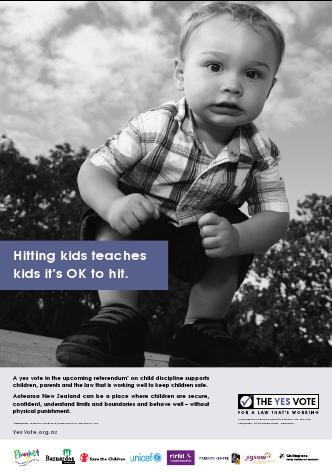June 10, 2009
There are three models the generations of the past have used to tackle the task of parenting.
The fist model, perhaps the traditional model, could be labeled “the dictator style“. This model promotes using parental power to “mould” children into shape, like a drill sergeant at a military training site. By the use of raw power or rewards, these “dictator parents” punish, threaten and many times use physical force on children. This may be slaps, punches or the use of belts and switches. Since parents are bigger than children, it is easy to overpower a child. Rewards are also used by dictator types. Since parents have access to money and goods, they attempt to bribe children into compliant behavior to get a reward for “good behavior.” This model can appear to work since the threat of being harmed, embarrassed or being yelled at forces children into fear and following orders.
Children raised by dictator parents tend to grow up as fearful, overly submissive, low-esteemed adults. The other response is to retaliate against parents as they get older and bigger, sometime becoming unmanageable when children strike back, using their power against their parents. These children feel unloved and rejected.
A second model could be called “the wet clay parents“. These are parents with no backbone — like wet clay, they can be molded and shaped by their children. These parents usually have little self- esteem themselves and desperately want their children to like and love them. They do everything they can to win their children’s favor. Permissiveness is the mode of operation and if the parents make a rule or express expectations for a child, the child gets angry, pitches a tantrum and the parents cave in and let the child do whatever the child wants to do. These children can become tyrants and dictators. As the kids get older and stronger, their parents may live in fear in their own home, like captives.
Children of wet clay parents often grow up selfish, uncooperative and demanding in all their relationships. They, too, feel unloved because there is no love in the parents who are victims. Parents feel no love but feel tons of resentment. When these children grow up, they can become violent to their spouses and children.
The third model, we will call “authoritative teacher style“. This is the parent who assumes parental power and uses her/his authority to set boundaries and expectations and models values that promote cooperation and shared power with children. Like a good teacher, the children know the parent is in charge, but is there to teach them, not to threaten or please them. Good teachers develop influential relationships with their students and set high standards and strict expectations. Authoritative parents do the same. When there is a problem, the authoritative parent sits down with the child and explores choices, allowing the child to express her or his thoughts and feelings, knowing that the parents have the final word. This model aims at mutual respect. Both the power of the parent and the child is utilized in the problem solving process.
Children of the authoritative teacher model grow up feeling loved, respected, have high self regard, and learn to be cooperative and respectful with others. This is a recipe for adult success.
—
Dr Bill Mitcham is the Director of The Marriage Maintenance Center in Davidson, North Carolina, USA.
June 9, 2009
From the American Counselling Association. Sponsored by the ACA Foundation
NO parent enjoys constantly warning or threatening his or her child, yet many children do seem programmed to drive mum and dad crazy, at least some of the time. So how can parents encourage good behaviours without shouting themselves hoarse?
Our usual reaction to a misbehaving child is often toward the side of anger, focusing on the negative and warning, ordering or threatening the child to behave.
Sometimes we issue warnings and threats before the child has misbehaved. A young child may be told: “If you don’t behave at grandpa’s birthday party today, you’ll be sorry,” while an older child might be threatened with: “Forget to turn in one more homework assignment and you’re grounded for a week!”
Studies find such warnings, threats and punishments are generally not very effective in modifying behaviour. Yes, a loudly yelled order may halt the immediate misbehaving, but it seldom makes a long-lasting difference in how your child acts.
Researchers find rewards are more effective in terms of achieving desired behaviours. This shouldn’t be surprising. As adults, we don’t like being lectured, threatened or punished, but often work harder and look forward to opportunities to do well, be recognised and reap a reward for our efforts. We all perform better when we feel good about ourselves.
Children respond in the same way. For young children rewards that immediately follow the desired behaviour are most effective simply because delayed gratification is too abstract for a young child’s mind to grasp. Older children, however, are able to look forward to something promised.
Rewards can take a variety of forms. While it can be something tangible, like a new book or CD, effective rewards can also cost nothing. Catch your child in the act of doing something positive and compliment him or her. Or pay more attention to that school work and offer praise when real effort is being shown. Sincere compliments and praise really work, and so do rewards like spending extra time with your child for a special activity, or just granting extra play or TV time for doing well.
Rewards shouldn’t be bribes, but rather a means to encourage positive behaviours so that they become long-term behaviours. To help that happen, don’t reward constantly, since that just makes the rewarding less meaningful. And remember to reward positive efforts, not just final outcomes. Trying hard counts as much as succeeding.
Use rewards correctly and you’ll find that they can be much more effective, and pleasant, than constant shouting, threatening and punishments.
- “The Counselling Corner” is provided as a public service by the American Counselling Association. Learn more about the counselling profession at the ACA web site, www.counseling.org.
June 8, 2009

By now, the so called ’smacking’ debate is one of those issues that has been aired so thoroughly that its arrival back on the political agenda is like having an argumentative uncle turn up for Christmas dinner. He’s here again, there’s going to be a fight – and how long will it be before he goes away again ?
Next month, in the middle of a recession, New Zealand is set to spend something close to $10 million on a citizens initiated referendum (CIR) on the subject. The result will not be binding on the government and – judging by our previous track record on CIR that are NOT held at election time – the turnout can be expected to be low. The 1995 firefighters CIR attracted a turnout of only 28%.
This year’s referendum is being held nearly two years after the legislation that amended S59 of the Crimes Act – thus removing the defence of ‘reasonable force’ in cases involving parental violence against children – was passed by Parliament by a majority of 113 votes to 8. This year, in a classic case of putting the cart before the horse, the country will be holding its postal vote on the CIR before the Ministry of Social Development has finished its review of how the new legislation has been working. That review is not due to be released until September or October.
So far, the Act – and with it, the operational discretion available to Police on whether it is in the public interest to prosecute – appears to be working exactly as the law makers intended. Parents are not being criminalised en masse by the law change, as some had feared. In the one headline case where a Police prosecution was mounted, the jury agreed with the prosecution that the 50 year old parent involved had indeed committed an assault when he flicked his four year old child’s ear, pulled his hair and punched him in the face.
In July though, the public will not be asked to deliver a verdict on the law that was passed in 2007, or on how that the Police have administered it since. The referendum question is :“Should a smack as part of good parental correction be a criminal offence in New Zealand?” With the best will in the world, it is hard to see how any MP – or any citizen – who supported the verdict of Parliament could wholeheartedly answer either “Yes” or “No” to such a formulation, since it begs the question in at least two important respects.
One, It contains a value judgment about the context (“ good parental correction”) and secondly, it assumes the question of whether, under current Police procedures, such a smack can ever be a criminal offence. Essentially, the public is being asked to pass a judgement on a scenario that two years down the track, has not eventuated.
Still, that is the question that has been accepted by the Clerk of the House for the vote, and freedom of speech factors should carry a great deal of weight. After all, this is a procedure initiated by citizens, and official intrusion has to be kept to the absolute minimum. On the other hand, some $10 million of public money is likely to be spent on this process. For that reason alone, the procedures for CIR deserve closer scrutiny.

For answers, I consulted Dr John Parkinson of York University in the United Kingdom. Parkinson, a New Zealander, has written extensively on issues of direct democracy, With good reason in the past, Parkinson has criticised the high hurdle that any citizens initiated referendum in New Zealand has to meet before it can trigger a ballot. The organizers are given only one year ( plus a brief extension in extenuating circumstances) to collect supportive signatures from ten per cent of the voting population.
In this case, that meant Larry Baldock and the other organizers of the ‘anti-smacking’ CIR had to gather about 285,000 signatures – which boils down to a requirement to gather on average, 781 signatures each day, every day, for an entire year. No wonder very few CIR ever manage to make the signature target. When taken together with the high 5% threshold for MMP, it is another reason why politicians should never be trusted to write the checks (or cheques) and balances on how democracy should operate. Compare the New Zealand situation with Switzerland, which gives campaigners 18 months to gather 100,000 signatures – or just 1.75% of registered voters, at a rate of only 182 a day.
On the other hand, Baldock may care to rethink his previously stated enthusiasm for California’s citizens initiated measures. As I pointed out a year ago, the threshold for initiatives in California may be only 5% of voters registered for the previous elections for governor, but these must be gathered in only 150 days, at a rate of 2,492 a day – and while the result is binding, such statutes can be (and regularly are) struck down subsequently by the courts, on constitutional grounds.
First, I asked Parkinson this question : How do other countries manage, if at all, the issue of leading or loaded questions in CIR ? “The New Zealand CIR institution,” Parkinson replied, “ is unique, because there is no draft law being voted on. In those US states which use the device, CIR are not “questions” but complete laws or constitutional amendments. You have to have a legal team to draft a complete Bill, and that’s what gets sent to a vote. In Switzerland, initiatives take the form of constitutional amendments. Thus, Swiss and US voters have a lot more to go on than New Zealand voters do. The latter have just a vague statement of intent which Parliament (which is sovereign, remember, not ‘the people’) has to interpret, consider and respond to.”
Also, Parkinson adds, no one else in the world operates an ‘acceptability’ test for CIR questions. “In the US, any such requirement would breach the First Amendment. Instead, they leave it up to other groups to come up with competing propositions, and put all the competing ones on the same ballot. It’s a ferociously expensive process, which means only the very well-funded have any chance. In Switzerland, they handle it by means of (a) delaying tactics. The Federal Council can choose any time it likes to hold the vote – and (b) government counter-proposals which go to a vote at the same time as the citizen’s initiative. Counter-proposals almost always win. In other words, no-one tries to filter out bad ideas in advance. They trust to the competitive democratic process to reveal the flaws in proposals. Having options [counter-proposals] helps.”

Thirdly, he says, questions are vetted in New Zealand, once they have passed the signature target. The precise question has to be agreed between the Clerk of the House of Representatives and the proposer, so that it meets the requirements of the CIR Act 1993. “ The ‘leading question’ issue has not come up in the three previous CIR that went to a vote,” Parkinson says, “but one, the Withers referendum [on crime, held in 1999] clearly breached the requirements of the Act in that it asked at least four separate questions. Mr Withers was extraordinarily resistant to the Clerk telling him to simplify it, and my interpretation of the correspondence between them is that the Clerk thought there was no point continuing an unpleasant fight when the vote would not make a difference anyway. That is my interpretation, not the Clerk’s. I don’t know what the process was in this case.”
Should loaded questions be ruled out? Well, in defence of the organizers of this year’s referendum, it is certainly not unknown for even government–initiated referendums, much less CIRs, to ask value-loaded questions. John Howard’s Australian republic referendum in 1999 for instance, was not shy about assuming the outcome that it sought, and nor was Augusto Pinochet’s ‘defence of the dignity of Chile’ referendum in 1988. Only those who didn’t care about Chile’s dignity – or who were too gutless to defend it – could disagree with El General, and his modus operandi.
The second question posed to Parkinson was : Given the track record of low turnout in New Zealand on non-binding postal CIR held outside the context of an election, what sort of majority can fairly compel a government to pay heed – and does overseas practice on non-binding referenda give us any guidance?
In other words, if ten per cent of voters seek a CIR, and only 30 % of the public respond, and 80% of those that respond express the same opinion, what weight – if any – should be given to that result by the government ?
There are three camps on the “what weight” question, Parkinson replies. “One, ‘pure majoritarianism’ says that 50%+1 is the only justifiable decision rule, and turnout has nothing to do with it. The second “consensus” camp says that there’s no hard and fast rule, but the higher the winning margin and the higher the turnout, the more legitimate the outcome.
The third is a “super-majority rule” which says you need 50%+1 of total votes, plus a majority in most or all states, or among ethnic groups, or religions, or whatever the major cleavage in society is. The point of super-majorities is to ensure that small states or groups don’t get steamrollered by the big ones all the time.” The examples, he says, include:
– Australian constitutional referendums that require an overall majority of voters, plus a majority in EVERY state;
– Swiss CIR that require an overall majority of the vote, plus a majority in more than half the cantons.

Other examples ? “There are two kinds of turnout restriction,” Parkinson concludes. “In Italy, so called “abrogative referendums”, allow citizens to challenge laws, but they require a turnout of 50%+1.” Otherwise, compulsion can always settle the question of turnout. Australia, Belgium, Brazil, and 27 other countries have compulsory voting, and that effectively settles any legitimacy question about the turnout.
Overall, Parkinson comes down on the side of the obvious. “ My view is that, given the non-binding nature of the vote, a big majority on a low turnout is not as compelling as a big majority on a big turnout. If it’s binding, then I like the double-majority system – it forces people to try to persuade each other rather than just bully each other. The decision rule should still be 50%+1 though. I don’t have a considered view on the turnout requirement, but my gut reaction is to prefer compulsory voting – it becomes a badge of citizenship, and not a burden.”
Plainly, compulsory voting – especially on some lobby group’s pet CIR topic – is not a runner in New Zealand, Perhaps it should be, when a highly organized 10 % of the population can compel the wider public to spend $10 million on a process that Parliament, in its considered wisdom, is then free to ignore.
At the very least, the Key government will be wanting to wait and hear from the MSD review of the current law – and how it is operating – before reaching any decision. Unfortunately, the public will not be able to do likewise
by Gordon Campbell at Werewolf
Republished with permission















